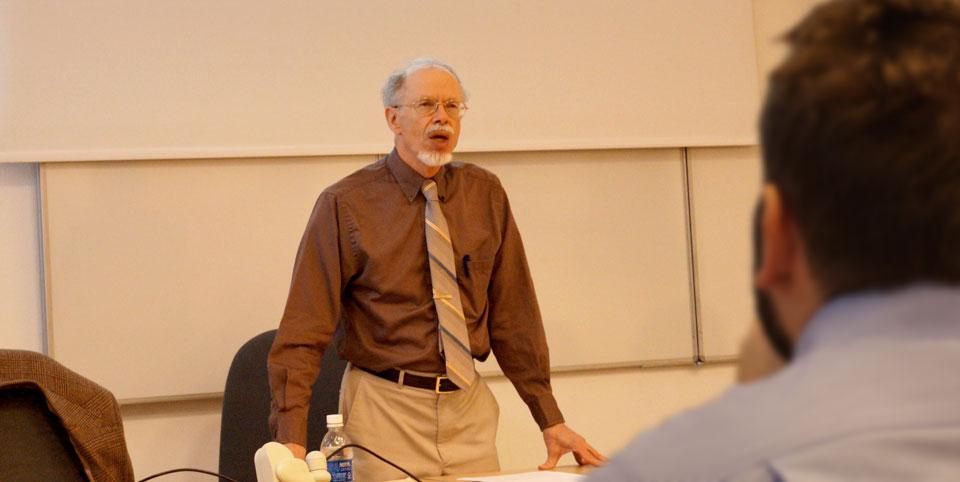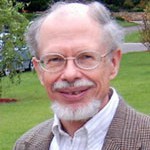
Bruce Reichenbach, an American professor of philosophy, shared insights about the Socratic method and reminded University of Žilina students of what is arguably Socrates’ most famous quote: “The unexamined life is not worth living.”
American professor Bruce Reichenbach, who spent time this year teaching at the Center for Christian Education—specifically, within the Department of Religious Studies at the University of Žilina—distinguished himself by delivering memorable lectures.
During one recent lecture, for example, he asked, “How can one stimulate students to consider, question, and carefully develop their own viewpoints?”
He was referring, of course, to the teaching method employed by ancient Greek philosopher Socrates. Using critical-thinking skills, students can become not only excellent thinkers but also persons of faith.
Why do other teachers emulate Socrates? Not because he was a good questioner, or admired by his students. Rather, said Dr. Reichenbach, teachers have used Socrates’ methods through the ages because the methods help others learn to evaluate and test their ideas.
The wisdom of Socrates, he declared, is a different kind of intelligence: for a person to know what he does not know and to enhance his or her moral character by critically examining other persons’ claims.
Is it really possible to be a Socratic professor? Dr. Reichenbach offered three myths:
The first myth is the myth of neutrality (professors are to be neutral). Because Socrates´ claim of not having wisdom is Socrates´ irony, Dr. Reichenbach points out that we all came to education with our own preconceptions and biases.
The second myth is the myth of expressionism. Socrates’ assumption was that learners already have knowledge within them. But what we are searching for are the things we do not know, with the expectations that there is something to know
The third and last myth: the myth of denigration, based on the assumption that teaching compels students to adopt a certain perspective rather than allowing them to think for themselves. Dr. Reichenbach said that the professor should use a tool of creating disciplines rather than educate.
Successful teaching, Dr. Reichenbach claimed, requires empathy between professor and student.
Many University of Žilina students were impressed by Dr. Reichenbach’s reflections as well as his personality. As one student put it, “He was not only that educated person in front of the blackboard but also a very pleasant and funny person.” Another declared, “He had a great ability to listen to his audience—something that is really very much like a Socratic professor.”
Thank you, Dr. Reichenbach, for your wonderful ministry in Slovakia!

Dr. Bruce Reichenbach
***
Planning a sabbatical? The Center for Christian Education makes a great sabbatical destination, with numerous opportunities existing within its ministries. In recent years we have welcomed clergy, deaconesses, educators, coaches, and others to our Lutheran Academy campus and our Bible School campus at the University of Žilina. To learn more about the opportunities that await you, please contact Adrian Kacian at adrian.kacian@gmail.com.


